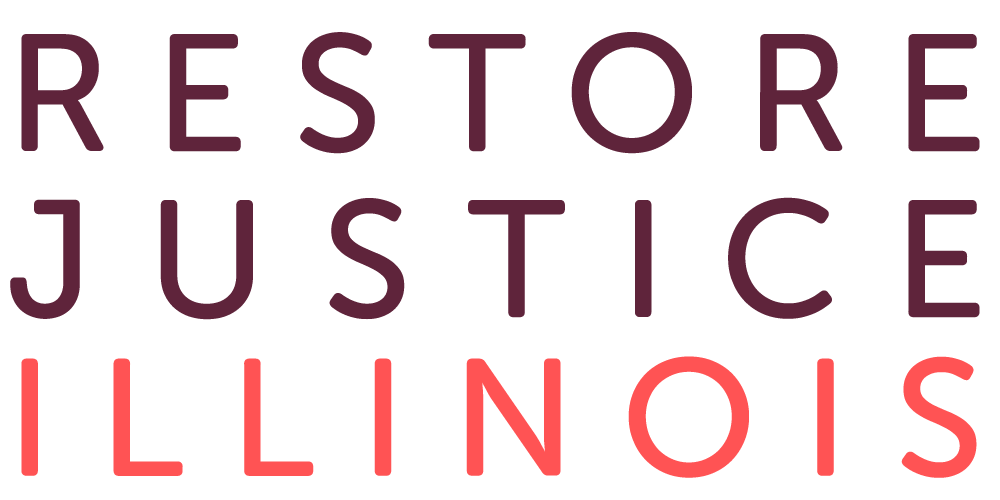BEN BIERLY – 2020
REPUBLICAN CANDIDATE FOR ILLINOIS’S 43RD SENATE DISTRICT
Mandatory gun enhancements: Judges must add 15 years to the sentence of someone who possesses but does not use a firearm in the commission of a crime. In 2015, a new law made these enhancements discretionary for juveniles, but not adults. HB4376 (Ford) would make those mandatory gun enhancements discretionary for all offenders. (Do you support, oppose, or are you neutral on the bill? Thoughts welcome.)
I am more favorable than not on the idea of making this a discretionary enhancement. My only concern is the threat the presence of a firearm presents in the commission of a crime – even if not used. I am very supportive of our individual rights to self-defense, especially with firearms, but there has to be some consideration of harsher penalties when someone uses a firearm (or has one on them) when they commit an offense. 15 years is probably too much though, if the offender doesn’t use the firearm.
Felony-murder rule: Illinois has a broad felony-murder statute that allows prosecution of individuals for murder in cases where they did not commit or plan to commit a murder, but committed another forcible felony that resulted in someone’s death. HB1615 (Slaughter) and SB2292 (Peters) would narrow the scope of Illinois’s felony-murder law. (Do you support, oppose, or are you neutral on the bill? Thoughts welcome.)
I had to research this a little. While I do understand the concern of a defendant being charged with murder, they are still committed a forcible felony. According to www.defenselawyersite.com, the legal definition of forcible felony includes the following acts: treason, predatory criminal sexual assault of a child, aggravated criminal sexual assault, criminal sexual assault, robbery, burglary, residential burglary, aggravated arson, arson, aggravated kidnaping, kidnaping, aggravated battery resulting in great bodily harm/permanent disability/disfigurement, or any other felony which involves the use or threat of physical force or violence against any individual.
Looking at this list, I can’t think of one instance where someone might reasonably be expected to be subject to murder or grievous bodily harm. I could support the bill if they lowered the murder to 2nd degree or manslaughter for those not immediately causing the death, but I can’t in good conscience let them off the hook for a possibility they should have reasonably known could result from such a violent felony.
Accountability: Illinois law utilizes a theory of accountability throughout its criminal statutes. This theory allows individuals to be convicted of the same, more serious crime as their co-defendant/s in an underlying felony, even if they did not directly perpetrate or plan to perpetrate the more serious crime. If convicted, people who are accountable serve the same sentence as the primary actor in the offense. (Do you think we should abolish accountability theory, narrow the usage of accountability theory, or keep accountability as is?)
I could see separating these out or reducing the sentence, with the exception mentioned in the previous question.
Earned sentencing credits: A 1998 law called Truth in Sentencing reduced or removed the opportunity for incarcerated individuals to earn “time off for good behavior.” The law has led to much longer actual “time served” in Illinois prisons and has removed incentives for rehabilitation. (Do you think we should restore earned sentencing credits to pre-1998 levels, restore some earned sentencing credits, or keep sentencing credits the same? General thoughts welcome.)
I would be happy to increase sentencing credits if those credits are earned by actions taken toward rehabilitation – like education, counseling, job training, work, etc.
Mid-sentence parole review: Illinois has true “parole for release” for only a tiny fraction of the prison population (those of any age convicted before the abolition of parole for release in 1978, and those under age 21 convicted after June 2019, pursuant to Public Act 100-1182, the Youthful Offender Parole Law). The remainder of incarcerated people in Illinois do not have access to a parole review hearing at any point in their term of incarceration. What most call parole in Illinois is a post-incarceration period of Mandatory Supervised Release, which is added to a sentence and is not a path to be released earlier than the original sentence.(Should we restore parole as a system for early release broadly, or should we continue with no general parole where the incarcerated serve the entire sentence received no matter what circumstances may have changed?)
I’d be open to the discussion, including moving an individual from prison to house arrest at some point.
Abolishing life without parole sentences for all juveniles. Unlike the majority of states, current law in Illinois still allows for a juvenile to receive a life sentence without the possibility of parole, despite young people having unique ability to change. A 2019 law implemented mid-sentence parole review for most individuals convicted of serious offenses before they turned 21. HB5670 (Mayfield) would expand on that law to prohibit life without parole sentences for anyone under the age of 21 when their crime was committed. Juveniles could still serve life in prison if the Prisoner Review Board rejects their application for early release. (Do you support, oppose, or are you neutral on this bill? Thoughts welcome.)
I could possibly support this, depending on the length of time served and reform. I would still want a minimum sentence requirement.
QUESTION 2: Proactive commutations by the Governor. Our current state prison population of 36,000 remains stubbornly high, largely because Illinois abolished mid-sentence parole review in 1978; people who otherwise might have been released from prison due to rehabilitation no longer have that option. The State Constitution gives the Governor authority to commute any sentence and release any person. Today, commutation is a reactive process. An incarcerated individual must submit a petition for review to the Governor, who tasks the Prisoner Review Board with creating a private recommendation, which the Governor may or may not act upon. Given the lack of mid-sentence parole review since 1978, do you think Governor Pritzker should make the reactive commutation system more proactive to systematically consider commutations? Potential groups to consider for proactive commutation include the elderly (over 65), those who have had excellent records while in prison, or those who have demonstrated remorse and have been rehabilitated but still face decades of incarceration. (Do you think Governor Pritzker should proactively review incarcerated individuals serving long sentences and assign them to the Prisoner Review Board to determine whether their sentences ought to be commuted given their unique circumstances? Do you think he should not do that? Thoughts welcome.)
It would make sense. I would rather see some system of parole reinstated as per the mid-sentence parole review question.
QUESTION 3: General ideas and personal anecdotes. When you think about our criminal legal system in Illinois (from policing to prosecution to sentencing to incarceration to re-entry), what do you see as the biggest opportunities for improvements in the next two years? Please consider this an open-ended question to share any important anecdotes that inform your perspective or other ideas for reform or improvements that deserve more attention.
Since I am not a lawyer, I can only answer from a policy perspective from what I do know. I have concerns about the use of private prison companies who get paid to manage prisons. They get paid by the population, which leaves incentive for them to report infractions that would add time to a prisoner’s sentence. I would also like to review rehabilitation, parole, and re-entry policies to ensure we are doing our best by the citizens of the state and the prisoners to reduce crime and recidivism.
QUESTION 4: Voting rights while incarcerated. Should people who are incarcerated in prison be allowed to vote? Those in county jails (before they are sentenced) are allowed to vote. Vermont and Maine allow those serving a sentence in state prison to vote.
I’m neutral. This is a centuries old policy, but I’m not sure it’s meaningful.
QUESTION 5: There is an ongoing debate over whether the General Assembly has the constitutional authority to pass a law reducing criminal sentences for people already incarcerated. Those who say it’s unconstitutional believe the only two methods to modify sentences are through executive clemency, or a legal procedure called revestment, wherein the prosecution and defense agree to bring the case back before a judge. On the other hand, some argue while those are two legitimate avenues to modify existing sentences, they are not the exclusive avenues, and if the General Assembly wishes to pass a law that reduces existing sentences, the General Assembly is not constitutionally precluded from doing so. In other words, revestment is a path toward modifying existing sentences and it doesn’t preclude legislative action. Please share your opinion on whether the General Assembly has the constitutional authority to pass criminal sentencing changes that affect the currently incarcerated. (This question is particularly relevant to State’s Attorneys, as the leaders of the community of State’s Attorneys have aggressively taken the position that any bill the General Assembly considers that would potentially reduce sentences for currently incarcerated people is unconstitutional.)
Clearly, the General Assembly does not have the authority to act as the judicial branch or the executive. The U.S. Constitution prohibits the use of bills of attainder, which would be the opposite of this idea, precisely because determining guilt and sentencing are acts that belong in the neutral judiciary. I understand people may feel some sentences are too harsh, but if we accept this practice, we’re going to open a can of worms we’re not ready to eat. Our society works precisely because law and policy are predictable. The moment we start making actions arbitrary is the moment we break the basis for free and peaceful government. There are other ways to address the underlying issue without breaking the constitutional system that makes our country so successful.

